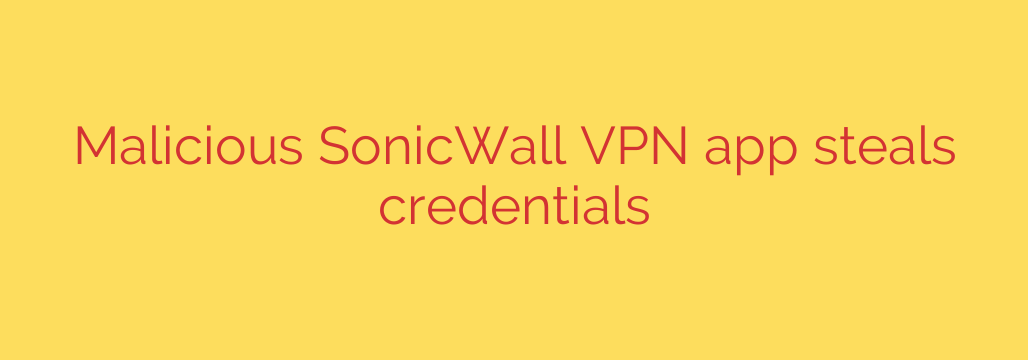
A critical cybersecurity alert has emerged regarding a malicious application that poses a significant threat to users seeking secure remote access. This rogue software is disguised as a legitimate client for a well-known network security vendor’s VPN service.
Cybersecurity researchers have identified that this fake application is designed with one primary goal: to steal sensitive information. Users who download and install this imposter app, typically from unofficial sources rather than the vendor’s official website, unwittingly compromise their security. The malicious program operates by harvesting credentials and other valuable data entered by the user, effectively turning a tool meant for security into a dangerous information stealer.
The distribution method often involves deceptive tactics, leading users away from official download channels. This highlights a persistent risk in the digital landscape: the danger of downloading software from untrusted third-party websites or through suspicious links. Such unofficial sources are common vectors for malware distribution, including trojans and spyware.
The impact of falling victim to such an attack can be severe. Stolen credentials can be used for unauthorized access to corporate networks, personal accounts, and other sensitive systems, leading to data breaches, financial loss, and significant disruption. It underscores the importance of digital hygiene and verifying the authenticity of software before installation.
To protect yourself from this credential-stealing threat and similar malicious campaigns, the guidance is unequivocal: always download software directly from the official website of the vendor. Avoid third-party download sites, peer-to-peer networks, or links received in unsolicited emails. Implementing strong, unique passwords and using multi-factor authentication (MFA) on accounts are also essential security measures to mitigate the risks associated with credential compromise. Stay vigilant and prioritize downloading securely to safeguard your personal and professional data.
Source: https://www.helpnetsecurity.com/2025/06/24/trojanized-sonicwall-netextender-app-exfiltrates-vpn-credentials/








